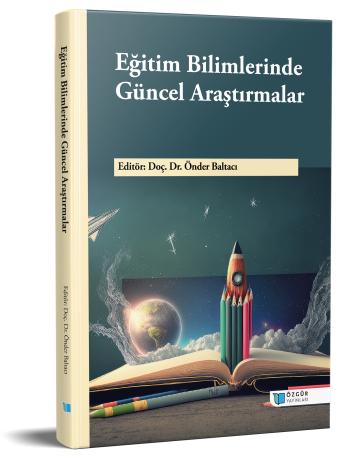
Eğitim Örgütlerinde Duygusal Emek
Şu kitabın bölümü:
Baltacı,
Ö.
(ed.)
2024.
Eğitim Bilimlerinde Güncel Araştırmalar.
Özet
Öğretmenlik mesleğinin duygusal emek gerektiren meslek grupları içinde yer aldığı bilinmektedir. Duygusal emek, öğretmenlerin tutumlarını etkileyen önemli bir örgütsel değişken olarak görülmektedir. Öğretmenler gerçek duyguları ile örgüt tarafından beklenen duygusal davranışlarını uyumlu hale getirmekte zorlanabilmektedirler. Eğitim kurumlarında öğretmenlerin duygusal çelişki yaşamayacağı uygun örgüt ortamlarının yöneticiler tarafından oluşturulması gerekmektedir. Yapılan araştırmalar okul yöneticilerinin duygusal emek davranışı farkındalıklarının, öğretmenlerin örgütsel davranışlarını etkilediğini göstermektedir. Bu durum okul yöneticilerinin duygusal emek farkındalıklarının arttırılmasının önemini ortaya koymaktadır. Dinamik bir yapısı olan okul örgütlerinin, dış çevredeki değişimlere ayak uydurması gerekmektedir. Örgütlerin amaçlarına ulaşabilmesinde çalışanların duygularının önemli bir rol oynadığı bilindiğinden, pozitif psikoloji kavramlarından pozitif iyi oluş, duygusal emek ve yönetsel destek çalışmaları örgütlerin değişimi ve gelişiminde önemli bir yer tutmaktadır. Örgütlerin değişen koşullara ayak uydurabilmesinin nitelikli çalışanlar ile gerçekleşmesinin yanında, yöneticilerin de çalışanların nasıl davranış sergileyecekleri konusunda bilgi sahibi olması gerekmektedir. Doküman analizi yöntemi ile Eğitim Bilimleri alanında 2010 – 2023 yılları arasında duygusal emek kavramı ile ilgili çalışılan ve Ulusal Tez Merkezinde bulunan tez çalışmaları incelendiğinde 10’u doktora, 38’i yüksek lisans olmak üzere 48 tez çalışması olduğu görülmektedir. Bu tezler analiz edildiğinde karma yöntemin kullanıldığı ve eylem araştırması içeren bir çalışma olmadığı sonucuna ulaşılmaktadır. Ayrıca Eğitim Bilimleri kapsamında duygusal emek konusunda, alanda yapılabilecek farklı çalışmalar olduğu ortaya çıkmaktadır.

